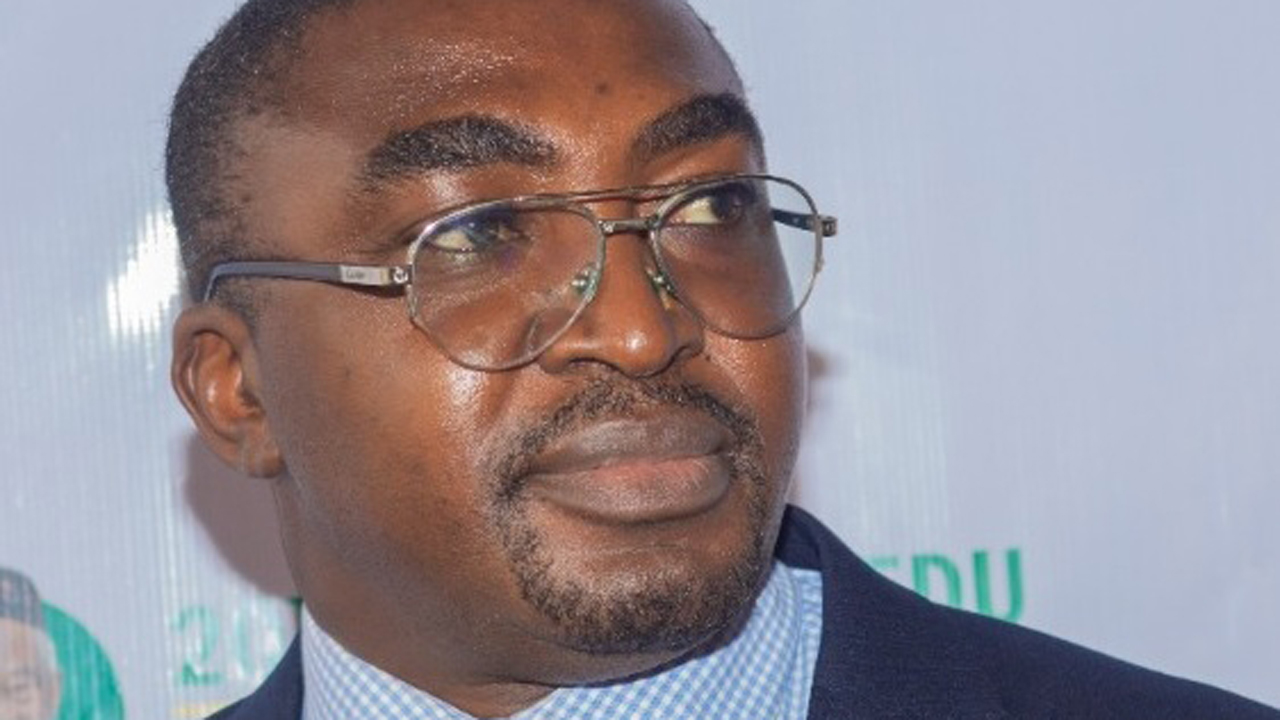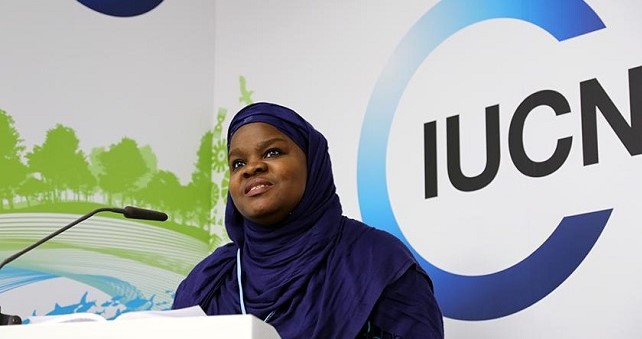
As delegates gear up for the climate change summit this week, Nigeria and other African countries are seeking just transition pathways that strengthen the global climate response in the context of sustainable development and operationalise equity in mitigation, adaptation and finance, writes Chinedum Uwaegbulam.
A major stride towards stepping up the Paris agreement will begin Thursday in Dubai, United Arab Emirate, as delegates take stock of countries’ compliance with the ‘Rule Book’ to address the multiple and escalating climate challenges facing the world.
The 28th session UN Climate Change conference (COP28), the world’s only multilateral decision-making forum on climate change is where the world comes together to agree on ways to address the climate crisis, such as limiting global temperature rise to 1.5 degrees Celsius, helping vulnerable communities adapt to the effects and achieving net-zero emissions by 2050.
More than 70,000 delegates are expected to attend COP28, including the member states (or Parties) of the UN Framework Convention on Climate Change (UNFCCC) including Nigeria. Business leaders, young people, climate scientists, indigenous peoples, journalists, and various other experts and stakeholders are also among the participants.
The conference comprises the yearly meetings of the three decision-making bodies of the Convention, the Paris Agreement (PA) and the Kyoto Protocol. In these bodies, delegates of all member states discuss and decide on a wide variety of climate-related agenda items.
Meetings at this year’s summit include the fifth session of the decision-making body of the PA (CMA 5) and the 18th session of the decision-making body of the Kyoto Protocol (CMP 18), discussing work streams under the Paris Agreement and the Kyoto Protocol, respectively.
Furthermore, the two subsidiary bodies under the UNFCCC, the Subsidiary Body for Implementation (SBI) and the Subsidiary Body for Scientific and Technological Advice (SBSTA), will convene for SBI 59 and SBSTA 59. These two bodies do not pass decisions themselves, but provide technical information and advice to COP, CMA and CMP.
Discussions are expected to progress in several work streams: hammering out the details of the loss and damage finance facility to help vulnerable communities deal with immediate climate impacts; driving towards a global goal on finance that would help fund developing countries’ efforts in addressing climate change; accelerating both an energy and a just transition, as well as closing the massive emissions gap.
COP28 marks eight years since the adoption of the agreement and as the world takes stock of its progress on the agreement through the first Global Stocktake (GST). The GST offers a comprehensive assessment of the global progress since the Paris deal, highlighting the necessary measures to bridge gaps and realign efforts for effective climate action.
The GST has shown that countries are not on track to limit global warming to 1.5 degrees Celsius. Governments will take a decision on the stocktake at COP 28, which can be leveraged to accelerate ambition in their next round of climate action plans due by 2025.
Nigeria and other African countries will be represented by the Africa Group of Negotiators (AGN) through Africa’s common position, a compilation of decisions by Africa heads of State and Government on Climate Change (CAHOSCC), African Ministerial Conference on Environment (AMCEN), and AGN.
Africa will be coordinated by Zambia as the Chair, AGN, ministers by Ethiopia as the Chair of AMCEN, and Kenya as the Coordinator, CAHOSCC. AGN Chair, Ephraim Shitima, said Africa’s approach to these multilateral climate negotiations is underpinned by principles of multilateralism, equity, sustainable development, common but differentiated responsibilities and respective capabilities.
“African countries seek to prioritise Africa’s interests and speak with one voice, while ensuring that their voices, concerns, and proposals are heard and acted upon.
“We are guided by Africa’s development frameworks; Agenda 2063, Africa Climate Change and Resilient Development Strategy and Action Plan (2022 to 2032), Sustainable Development Goals (SDGs), and of course Nationally Determined Contributions (NDCs),” he said.
According to him, Africa supports GST outcomes that consider Africa’s special development circumstances and provides the policy space necessary for the continent to achieve sustainable development and just transition to low emission and resilient development.
“Africa’s core focus at COP 28 is to enhance action on adaptation and resilience against the consequences of climate change. Key to this is the effective operationalisation of the Global Goal on Adaptation (GGA) under the PA through the adoption of a concrete, science-based framework to achieve the goal on adaptation and enhance adaptation efforts.
“Building on outcomes at COP 27, COP 28 should operationalise the loss and damage fund, including with the adoption of governance instruments. This measure will support African countries in coping with the irreversible impacts of climate change and aid in the recovery of affected communities,” he said.
Shitima said developed nations should make substantial financial commitments and address the outstanding deficit in the delivery of the promised $100 billion per year since 2020.
He said: “The conference should also be a platform to propel the decision to double adaptation finance and advance negotiations on a new quantified finance goal.
“There is also a need for progress in reforming Multilateral Development Banks (MDBs) to make them more suitable for the climate challenges ahead by enhancing scale, affordability, and accessibility with the necessary safeguards for developing countries.”
He said Africa will call for the adoption of an ambitious decision under the work programme on just transition pathways that strengthen the global climate response in the context of sustainable development and operationalise equity in the pathways for mitigation, adaptation and finance under the PA.
“The decision should be cognizant, provide the policy space and support in consideration of the continent’s unique needs and development circumstances and urgent needs. This should ensure a fair and equitable shift to a low-carbon and climate resilient development.
“Africa is and will be impacted more than any other continent, and the adverse impact of climate change is limiting Africa’s economic and development trajectory, while the continent only contributes less than 4 per cent,” Shitima added.
The Director General, National Council on Climate Change (NCCC), Salisu Dahiru, said Nigeria’s focus includes securing funds to implement its Energy Transition Plan (ETP) that was launched at last year’s conference.
It will also be raising additional finance from the $100 billion pledge made by the global north to support mitigation and adaptation in developing countries.
MEANWHILE, the latest Emissions Gap Report from the UN Environment Programme (UNEP) finds that current pledges under the Paris Agreement put the world on track for a 2.5-2.9°C temperature rise above pre-industrial levels this century, pointing to the urgent need for increased climate action.
The Emissions Gap Report 2023: Broken Record – Temperatures hit new highs, yet world fails to cut, finds that global low-carbon transformations are needed to deliver cuts to predicted 2030 greenhouse gas emissions of 28 per cent for a 2°C pathway and 42 per cent for a 1.5°C pathway.
“We know it is still possible to make the 1.5 degree limit a reality. It requires tearing out the poisoned root of the climate crisis: fossil fuels. And it demands a just, equitable renewables transition,” said Antònio Guterres, Secretary-General of the United Nations.
Maintaining the possibility of achieving the Paris Agreement temperature goals hinges on significantly strengthening mitigation this decade to narrow the emissions gap. This will facilitate more ambitious targets for 2035 in the next round of Nationally Determined Contributions (NDCs) and increase the chances of meeting net-zero pledges, which now cover around 80 per cent of global emissions.
“There is no person or economy left on the planet untouched by climate change, so we need to stop setting unwanted records on greenhouse gas emissions, global temperature highs and extreme weather,” said Inger Andersen, Executive Director of UNEP. “We must instead lift the needle out of the same old groove of insufficient ambition and not enough action, and start setting other records: on cutting emissions, on green and just transitions and on climate finance.”






